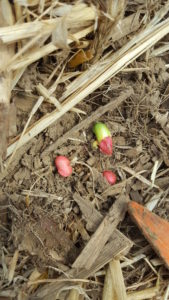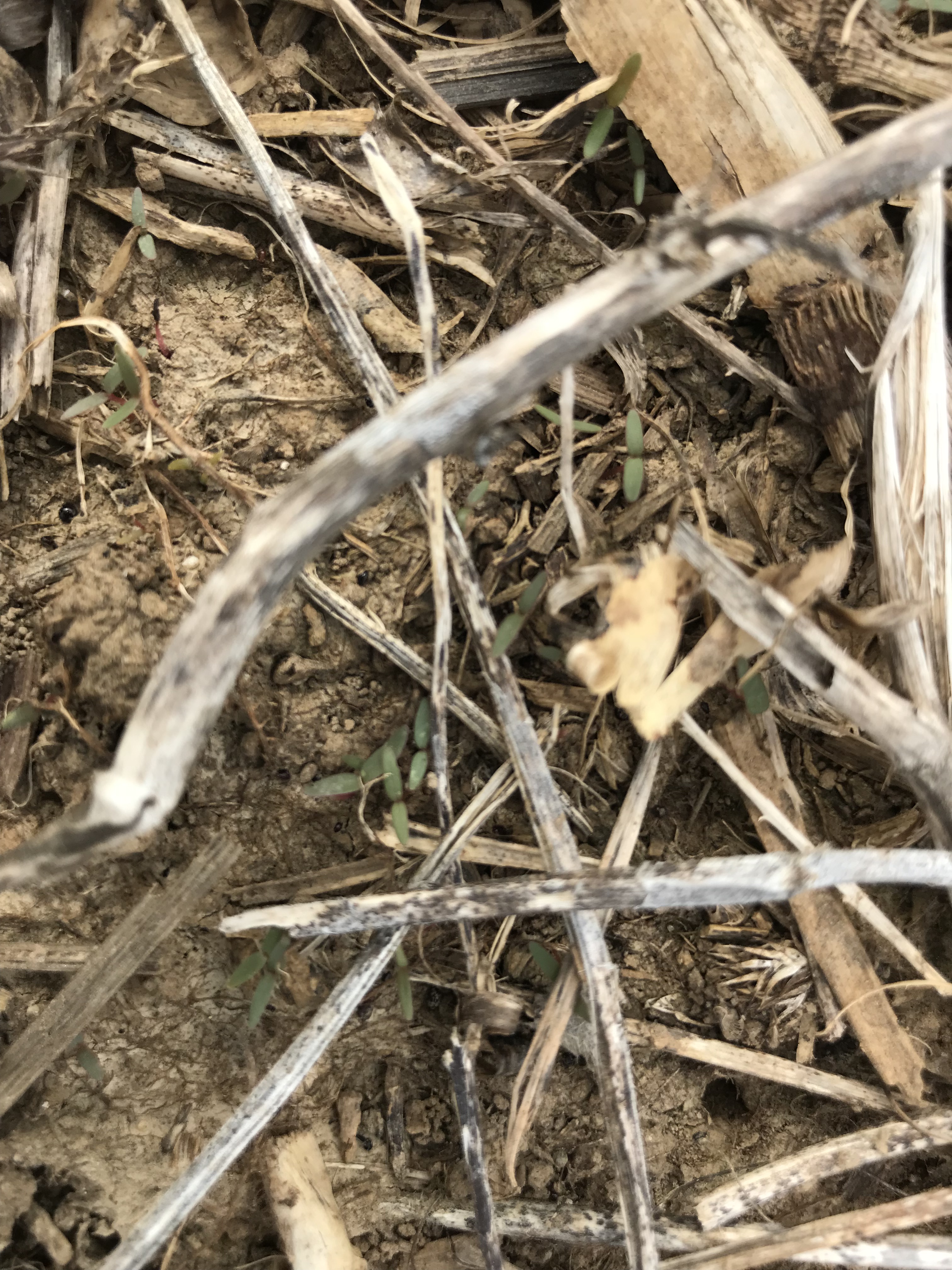 The hot, dry weather has sapped surface moisture pretty well in parts of the state, which is affecting ease of planting and soybean emergence. Continue reading
The hot, dry weather has sapped surface moisture pretty well in parts of the state, which is affecting ease of planting and soybean emergence. Continue reading
Category Archives: Soybean
Destroying a Poor Corn Stand to be Planted Back to Soybean or Cotton
Clearly the most frequent call the last few days of April and the first half of May has concerned corn replant. All through early May the calls have been on how to destroy a partial stand of corn and replant back to corn. In just the last few days the question has been on how to remove a poor stand of corn and then plant back to soybeans or cotton. Continue reading
Scout Cotton and Soybean Fields Planted Last Week for Palmer Amaranth
I have gotten numerous reports of Palmer amaranth becoming established in fields where PRE applied herbicides were not activated by timely rainfall. Indeed I have seen some in my research as well. There were many acres of cotton and soybean planted May 7 to May 14. The rain that was in the forecast for last week was a no-show. The result is many of the PRE applied herbicides sprayed on all those cotton and soybean acres was not activated. This has led to a large flush of Palmer amaranth to emerge with the cotton and soybean in a good number of fields in Tennessee. Continue reading
Armyworms in Wheat etc.
Be alert for true armyworm infestations in wheat, and these larvae may also migrate into soybean, corn or other crops from adjacent wheat fields of grassy ditch banks. They might even be on weedy grasses or wheat or other grasses used in cover crops, and this could cause a problem if Continue reading
Applicators Must Have a Copy of 24c Label for Engenia or XtendiMax
It is my understanding that applicators when they apply Engenia or XtendiMax must have on hand a copy of the 24c label for those herbicides. A hard copy is preferred. Baring that a downloaded copy on to your Ipad, tablet or phone would be better than nothing. Trying to down load a copy on to your phone as the TDA inspector pulls into your field is not recommended. The links so you can down load, print a copy and read before you go spray is:
Engenia http://www.cdms.net/ldat/ldDG8026.pdf
XtendiMaxTN xtendimax 24c label Continue reading
First Palmer Amaranth Just Emerging

Palmer amaranth started emerging in West Tennessee just over the past few days. The first pigweed I noticed emerging was on April 30. This late emergence is very different from past springs. Continue reading
Soybean Residual Herbicide Consideration
Residual herbicides will play a large role in the success or failure of our weed control program in 2018. Last year a number of folks used Engenia plus Roundup followed by Engenia plus Roundup as needed in soybean. That will lead to failure if not in the short term certainly in the long term. Continue reading
Managing Late-Emerging Horseweed
In 2017 and now again in 2018, the lack of horseweed (marestail) in many fields for late March is very notable. So what is the reason/s for the lower landscape level horseweed infestations? Continue reading

